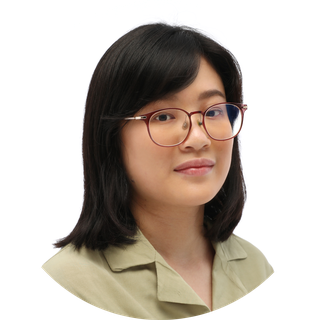Lee Kuan Yew’s pragmatism still relevant in navigating geopolitics: panellists

Singapore’s late founding prime minister Lee Kuan Yew’s pragmatism over geopolitics and a firm belief in a rules-based multilateral world order are still relevant today in navigating international affairs, said panellists at a conference on Wednesday (Oct 4).
The speakers were Singapore’s Deputy Prime Minister Heng Swee Keat, former Australian prime minister John Howard and Ma Ying-jeou, the founder and chairman of public policy advisory body Ma Ying-jeou Foundation.
They were speaking at the inaugural Asia Future Summit, a two-day conference jointly hosted by The Business Times, The Straits Times and Lianhe Zaobao. OCBC is the presenting sponsor of Asia Future Summit 2023. The event is also supported by Guocoland and Kingsford Group.
The summit – with the theme, “Revisiting Lee Kuan Yew’s view of the world: Looking ahead to Singapore and Asia’s future amid turbulent times” – is being held in commemoration of his birth centenary.
At the panel discussion, the panellists shared their experiences and first-hand insights they had with Lee, who died in 2015 at the age of 91.
Heng served as Lee’s principal private secretary between 1997 and 2001, while Ma and Howard had worked closely with Lee in various capacities.
GET BT IN YOUR INBOX DAILY

Start and end each day with the latest news stories and analyses delivered straight to your inbox.
Heng listed three areas in which the former minister mentor shaped international relations globally and in the region.
First, Lee made great contributions to Singapore and Asia’s prosperity. He invited international companies to Singapore to build a world-class business environment, transformed the nation into an export-oriented economy and played a role in the opening of China’s economy under former leader Deng Xiaoping.
Secondly, as Singapore’s “chief foreign diplomat”, Lee built close ties with many world leaders and helped them to understand each other’s strategic interests to build a common ground.
Lastly, he saw the need to build a rules-based multilateral framework. In South-east Asia specifically, he noted that Lee worked very hard to improve relations among the various Asean member states as well as between the bloc and other external powers.
“This has helped to lead a path forward for Asia’s development and prosperity, allowing countries to work closely together with external powers in a multilateral framework that is based on rules,” said Heng.
Howard, meanwhile, recalled how Lee was always able to view geopolitical events objectively and in a broader context, citing as an example his views on the Vietnam War.
And for Singapore to “survive and prosper”, Lee knew that it had to “become a citizen of the world”, said the former Australian leader, who was in office from 1996 to 2007.
Ma, who is also the former president from Taiwan, said Lee’s insights on cross-strait relations resonated deeply with him during his tenure as president. Both leaders had agreed then that cross-strait developments must focus on the welfare of its people.
“He had this strong sense of mission to push forth the relationship for the Taiwan Straits, because he felt that this was very crucial to the peace and stability of the Asia region,” he said.
Asked why many world leaders were able to accept Lee as a “critical friend”, Heng said that Lee’s views were well regarded because he was a very good objective third-party observer with a clear mind.
Ma said that Lee was appreciated for his honesty and for being straightforward, while Howard noted that Lee was always focused on doing the right thing on any issue.

KEYWORDS IN THIS ARTICLE
BT is now on Telegram!
For daily updates on weekdays and specially selected content for the weekend. Subscribe to t.me/BizTimes
Singapore
Beyond giving grants, EnterpriseSG seeks to be more proactive about helping businesses transform
100 years on, SICCI to focus on internationalisation, digitalisation and sustainability
Taylor Swift effect: Singapore hotels’ average room rate grows in March; tourist arrivals reach new post-Covid high
Singapore top recipient of Q1 cross-border investments in Apac: Knight Frank
Shanmugam, Vivian seek aggravated damages from Lee Hsien Yang over post on Ridout Road rentals
Singapore and Canada to enhance science and technology cooperation
